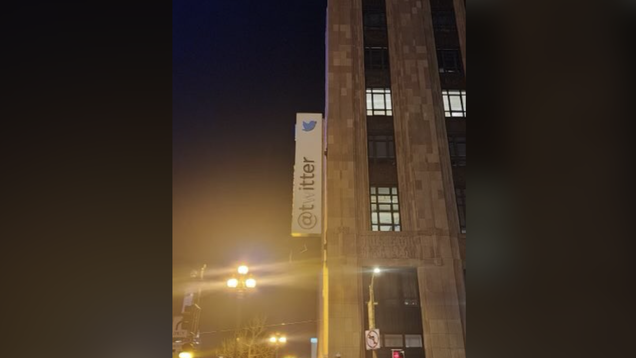Elon Musk Painted Over the ‘W’ on the Twitter Headquarters Sign, Which Now Reads ‘Titter’

Twitter CEO Elon Musk has confirmed that he was the one responsible for covering up the “w” in Twitter’s name with a white tarp a few days ago—and he’s done it again. This is how new “Titter” was born.
Gizmodo Monday Puzzle: How Well Can You Read Minds?

You know that I love puzzles. And I know that you know that I love puzzles. Does it follow that you know that I know that you know that I love puzzles? No? Philosophers examine questions like this in the study of common knowledge. To solve this week’s puzzle, you’ll need to peer inside others’ minds and deduce what…
LLMs and Phishing
Here’s an experiment being run by undergraduate computer science students everywhere: Ask ChatGPT to generate phishing emails, and test whether
Long-Lasting Balada Injector Campaign Hits WordPress Websites, Researcher Reveals
compromised an estimated 1 million WordPress websites since its inception in
2017.
The campaign leverages “all known and recently discovered theme and plugin
vulnerabilities” to inject a Linux backdoor that lets attackers gain
unauthorized access to affected websites. The campaign’s primary objective
appears to be redirecting users to fraudulent tech support pages, fake lottery
wins, and push notification scams.
According
Over 1 Million WordPress Sites Infected by Balada Injector Malware Campaign
The massive campaign, per GoDaddy’s Sucuri, “leverages all known and recently discovered theme and plugin vulnerabilities” to breach WordPress sites. The attacks are known to play out in waves once every few weeks.
“This campaign is easily identified
What is the true potential impact of artificial intelligence on cybersecurity?
Will artificial intelligence become clever enough to upend computer security? AI is already surprising the world of art by producing masterpieces in any style on demand. It’s capable of writing poetry while digging up arcane facts in a vast repository. If AIs can act like a bard while delivering the comprehensive power of the best search engines, why can’t they shatter security protocols, too?
The answers are complex, rapidly evolving, and still murky. AI makes some parts of defending computers against attack easier. Other parts are more challenging and may never yield to any intelligence, human or artificial. Knowing which is which, though, is difficult. The rapid evolution of the new models makes it hard to say where AI will or won’t help with any certainty. The most dangerous statement may be, “AIs will never do that.”
Hackers Exploiting Two New Zero-Days in iOS 16 and macOS Ventura – Patch Now!
discovered security flaws that criminals are said to be exploiting in the wild.
Two weeks after patching ‘actively exploited
[https://www.bitdefender.com/blog/hotforsecurity/apple-patches-actively-exploited-security-flaw-in-older-iphones-with-ios-15-7-4/]
’ vulnerabilities in older iPhone models, Apple is now rolling out more security
updates, this time to patch newer iterations against freshly discovered bugs –
includi
Five New Actively Exploited Vulnerabilities Added by CISA to its KEV Catalog
The U.S. Cybersecurity and Infrastructure Security Agency (CISA) added five new actively exploited vulnerabilities to its Known Exploited Vulnerabilities (KEV) catalog. Three of the added vulnerabilities were found in the Veritas Backup Exec Agent software and were used by threat actors to deploy ransomware, another one was exploited as zero-day as part of an exploit […]
The post Five New Actively Exploited Vulnerabilities Added by CISA to its KEV Catalog appeared first on Heimdal Security Blog.




